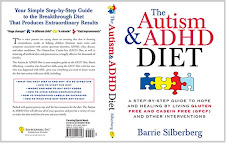
WHAT YOU NEED TO KNOW TO BEGIN
1.
Know that you are not alone. I am a parent just like you. I completely understand the heartache at the onset of the journey, confusion in navigating the treatment jungle, fear of not doing enough, anger at the system or anyone who gets in my way and a million other emotions that come and go in waves of uncertainty.
2.
Know that progress is on our side. As I mentioned before and will continue to do so, no matter how severe the degree of autism your child my experience, your child can progress. It is important to define what progress is in your own terms in relationship to your child’s starting point. I can remember the celebration we had when my 7 year old son learned to blow his nose. Some would say how is that progress? My son had cold induced asthma that would (despite being GFCF) would produce huge amounts of mucus. He would sneeze snot rockets (which are socially unacceptable let alone highly contagious) and swallow so much mucus he would vomit it back up. So in terms of my son and his health conditions this was huge progress! So progress is defined by the starting point and the specific needs of the child and family.
3.
Hope is your strength. Being a woman of faith I hold closely the promise of that states, “I know the plans I have for you (I insert my child’s name), plans to prosper you, plans for a good future. We are told with out a vision or dream we perish. There are always difficult times and even times that seem unbareable, but you have support among fellow parents, and you need to cling to hope. Breakthroughs in treatment have already been made and as research continues we will see even more.
Keep your hope alive!












